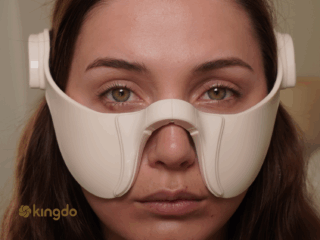
When it comes to oral health, most people think of their routine check-ups and cleanings, maybe the occasional filling or crown. But there are situations that go far beyond the scope of your general dentist’s care—times when a referral to an oral surgeon is not just recommended but essential. Whether you’re dealing with impacted wisdom teeth, facial trauma, or chronic jaw issues, knowing when to escalate your care can make all the difference. If you’re searching for a qualified dentist in Paramus NJ, it’s important to understand which symptoms point to something more complex and why oral surgeons are equipped to help.
What Oral Surgeons Actually Do
Oral and maxillofacial surgeons are dental specialists who receive years of additional training beyond dental school. Their expertise lies in diagnosing and surgically treating a wide range of conditions involving the mouth, jaw, and face. This includes everything from bone grafts and dental implants to corrective jaw surgery and biopsies of suspicious oral lesions.
Unlike general dentists, who focus on preventive and restorative care, oral surgeons handle the complex procedures that require sedation, advanced imaging, or surgical precision. Their training also extends into areas like anesthesia administration, infection control, and trauma recovery, making them vital in both elective and emergency care.
Signs You Should See an Oral Surgeon
So, how do you know it’s time to move beyond your general dentist and consult a specialist? One of the most common reasons is the presence of impacted teeth, especially wisdom teeth that haven’t erupted properly. These can cause pain, infection, or even damage to surrounding teeth and bone if left untreated.
Facial trauma is another red flag. Accidents involving the jaw, cheekbones, or teeth often require surgical intervention to restore both function and appearance. Oral surgeons are also the go-to experts for patients experiencing persistent jaw pain, clicking, or difficulty chewing, which are potential signs of temporomandibular joint disorder (TMJ).
In some cases, patients may be referred for the removal of cysts, tumors, or suspicious oral growths. An oral surgeon can not only remove these lesions safely but also provide a biopsy to rule out cancer or other serious conditions.
Dental Implants and Bone Grafting
Tooth loss is not just a cosmetic issue—it can lead to shifting teeth, bone loss, and bite misalignment. While a general dentist can create bridges or dentures, dental implants require the surgical skill of an oral surgeon. The procedure involves placing a titanium post into the jawbone, a process that requires precision and a deep understanding of anatomy.
In cases where bone loss has already occurred, a bone graft may be necessary to rebuild the area before an implant can be placed. This is another procedure that falls squarely under the expertise of an oral surgeon. Their understanding of facial structure and healing dynamics ensures the best possible outcome for long-term oral health.
Sedation and Surgical Safety
One of the key reasons patients are referred to oral surgeons is their ability to perform procedures under sedation. Whether it’s local anesthesia, IV sedation, or general anesthesia, oral surgeons are highly trained in managing pain and anxiety safely during complex procedures.

Why the Right Specialist Matters
Choosing to see a specialist isn’t just about getting a second opinion—it’s about receiving care that’s tailored to your specific needs. If you’re based in Georgia, a practical place to start is with reputable dental care near Atlanta that offers oral surgery, which can be coordinated with your dentist. Whether you were referred by your general dentist or you’re exploring your options directly, working with a trusted oral surgery practice gives you access to technology, training, and care that go beyond standard dental treatment.
In Paramus, patients can turn to Paramus Park Oral Surgery for compassionate, expert-led care. Their team is experienced in a wide range of procedures and dedicated to helping patients navigate every step of their oral health journey with confidence and clarity.
Conclusion
Oral health is more than just brushing, flossing, and twice-yearly cleanings. When your needs exceed routine care, understanding when to consult an oral surgeon can be crucial for your comfort, safety, and long-term well-being. From extractions to implants to advanced facial surgery, these specialists play a vital role in comprehensive dental care. If you’re looking for a dentist in Paramus, NJ, and facing symptoms that may require surgical expertise, don’t hesitate to explore your options with a qualified oral surgery team.












